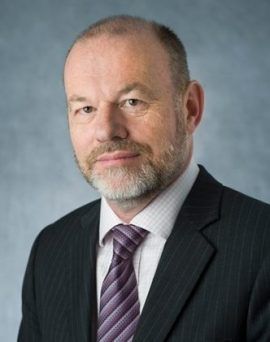Exclusive: South Australia’s vision to be a space hub
By Medha Basu
How the moon landing inspired Richard Price to help build the state’s space industry.

Great barrier reef. Image: eutrophication&hypoxia - CC BY 2.0.
The event was part of what inspired him to study engineering. Today, Price is Chief Executive of Defence South Australia, where he is also leading the country’s first state-run centre to grow a space industry.
With the decline of South Australia’s automotive industry, space has becoming an important part of the state government’s vision to build an advanced manufacturing economy, Price says. "One of the key reasons that space is important I think is that it grabs the imagination of kids,” he says - and more recently, grown-ups too.
Space vision
There is a palpable sense of excitement among the people who are part of South Australia’s space industry - largely made up of startups and researchers, who have operated with minimal state support so far. “It has been people who have taken ideas and seen how they can make a contribution,” Price says. In the last three years alone, 20 small space companies have set up in South Australia.

The state government is now trying provide the right platforms and funding to help these companies test their ideas, build businesses and support researchers to continue coming up with new ones. “South Australia’s vision for space is really to nurture that environment so that those companies can thrive,” Price says.
Last month, the state set up a $4 million Space Innovation Fund. It will award $1 million annually to fund scholarships to study about space; incubators to help companies build robust business models; and an accelerator programme to help them run pilot programmes and attract capital. These are open to both the locals and companies from elsewhere which want to set up base in South Australia.
Next, the government will invest in the “shared infrastructure” these companies need to execute their business plans, Price adds, such as testing facilities, small launch sites and ground stations.
Building STEM skills
South Australia’s universities play a key part. The University of South Australia is looking to set up a “cooperative research centre” for space, he adds, where basic research on space would take place. The university has already been working with the International Space University to jointly organise a space studies programme for the last few years.
Finally, Price believes that the space industry will be a magnet for people with skills in science, technology, engineering and maths. “Kids can be captured by the possibilities of space,” he says - just he was. “It’s a great way of attracting young people’s passion.”
“Kids can be captured by the possibilities of space.”
Setting up a national space agency
The South Australian Government is working with the federal government to set up the country’s first national space agency.
The agency will provide much needed central coordination and standards to grow the space industry, Price hopes. “We really need the federal government, through the space agency, to provide some uniform legislation that will make it easier for us to launch and recover space vehicles in Australia.”
There is currently “not an environment where there are large contracts to compete for”, and so efforts need to be coordinated to make the most of scarce resources, he adds. South Australia, for instance, has signed agreements with the states of North Territory and Australian Capital Territory, to coordinate their contributions to the federal space agency.
Neil Armstrong’s first step on the moon inspired six-year-old Price to become part of South Australia’s growing space industry. The platform he and his team are now building will help boost many others like him in the future.
Richard Price spoke to GovInsider at the 3DEXPERIENCE Forum Asia Pacific South 2018 in Adelaide on 13 February.